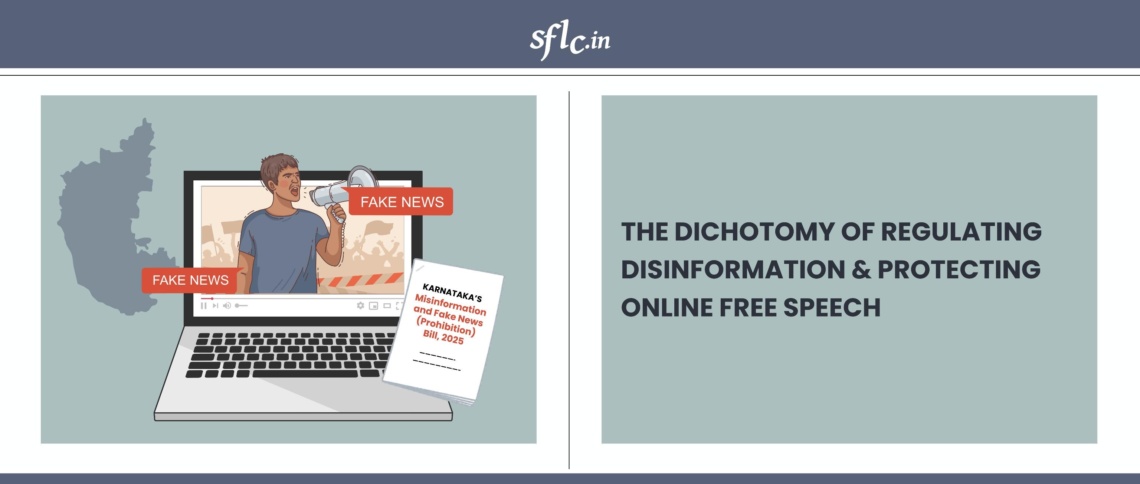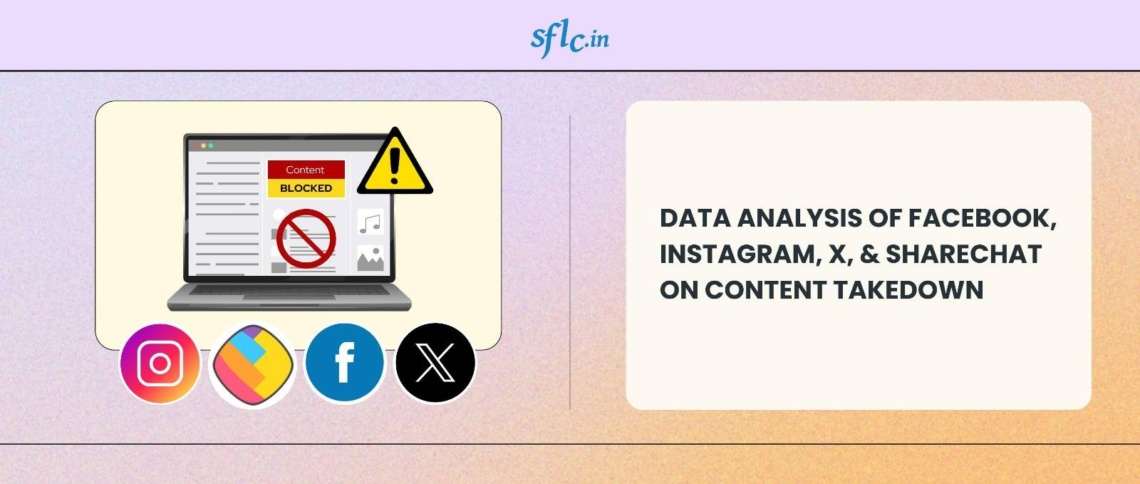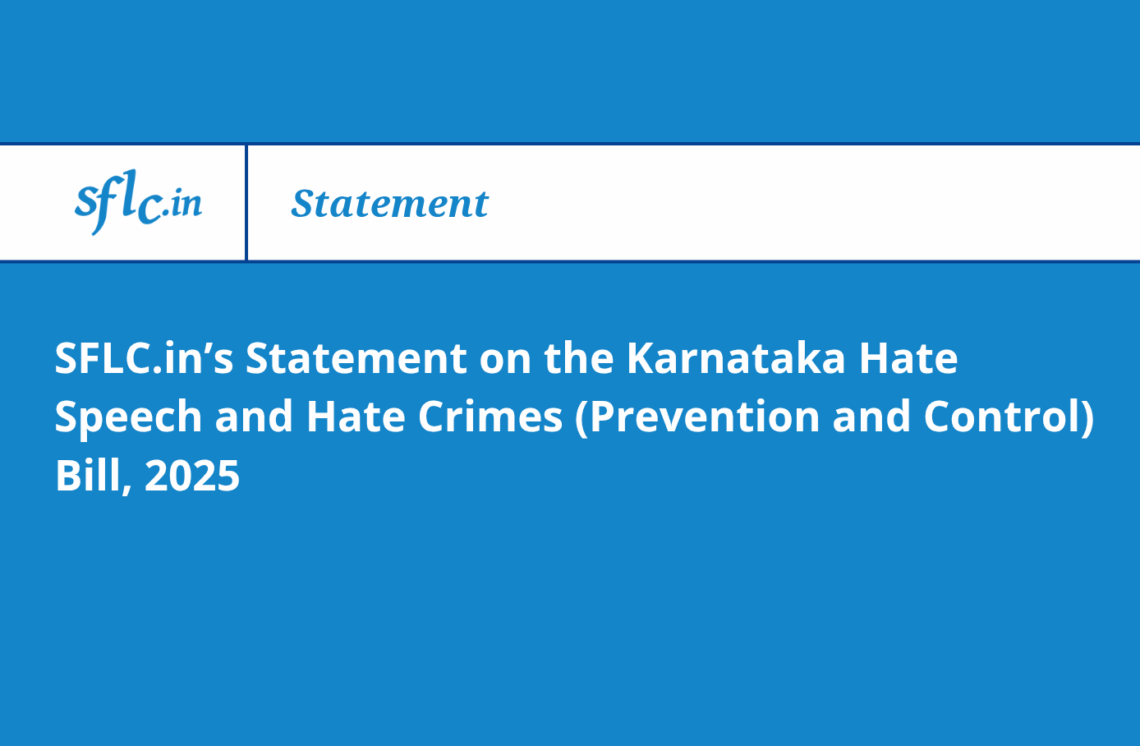Since its introduction back in October 2000, the Information Technology Act has proved to be a highly controversial piece of legislation. In its thirteen-odd years of operation, the Act has managed to draw considerable criticism from the legal community and the general public. It is alleged to contain a whole spectrum of flaws, shortcomings and pitfalls ranging from being inefficient in tackling cyber crimes to placing unfair curbs on the civil liberties of citizens.
Making matters worse, a 2008 Amendment introduced to the Act the now-infamous Section 66A, which reads:
Any person who sends, by means of a computer resource or a communication device:
a) any information that is grossly offensive or has menacing character; or
b) any information which he knows to be false, but for the purpose of causing annoyance, inconvenience, danger, obstruction, insult, injury, criminal intimidation, enmity, hatred or ill will, persistently by making use of such computer resource or a communication device,
c) any electronic mail or electronic mail message for the purpose of causing annoyance or inconvenience or to deceive or to mislead the addressee or recipient about the origin of such messages, shall be punishable with imprisonment for a term which may extend to three years and with fine.
The offence under 66A being cognizable, police authorities were initially empowered to arrest or investigate without warrants, based on charges brought under the Section. This resulted in a string of highly publicizedarrestsof citizens for posting objectionable content online, where the ‘objectionable’ contents were more often than not, dissenting political opinions. Some relief against this was granted in the form of an advisory issued by the Central Government in January 2013, which said no arrests under 66A were to be made without prior approval of an officer not below the rank of Inspector General of Police. However, the advisory was mostly ignored by authorities since it was issued by the Central Government while law and order is for the State Governments to administer.
Apart from Section 66A, the Information Technology (Intermediaries Guidelines) Rules, 2011 have also seen their fair share of criticism. While Section 79 exempts intermediaries from liability in certain cases, the Rules water down these exemptions and force intermediaries to screen content and exercise on-line censorship. Additionally, the Information Technology (Procedure and Safeguards for Blocking for Access of Information by Public) Rules, 2009 provide for blocking of web pages without proper publication or notice to public containing the reasons for blocking. The process of blocking is undisclosed and fails to meet Constitutional safeguards of natural justice.
Matters have now come to a head before the Apex Court, where a series of cases have been scheduled to be taken up together, all challenging various aspects of the IT Act and associated Rules, among which Section 66A features with much prominence.
Shreya Singhal v. Union of India – Concerned by the recurring arrests made under Section 66A, this petition was filed in public interest before the Supreme Court challenging the constitutionality of 66A. The petitioner argues that the impugned Section is too broad in its sweep and contains several undefined words/terms, making it susceptible to wanton abuse. This creates a ‘chilling effect’ where citizens are severely disincentivized from exercising their constitutionally protected right to free speech for fear of frivolous prosecution. Thus, Section 66A is violative of Articles 14, 19 and 21 of the Constitution of India that guarantee citizens the Fundamental Rights to equality, free speech and life respectively. In addition to declaring Section 66A as unconstitutional, the petitioner urges the Court to issue a guideline stipulating the treatment of all offences involving free speech concerns as non-cognizable. [Read more]
In the course of proceedings, the Supreme Court through an interim order directed the State Governments to ensure compliance with the Central advisory issued in January 2013, thereby ensuring that no arrests under Section 66A are made without prior approval.
Rajeev Chandrashekhar v. Union of India – Filed by a serving Member of Parliament, Rajeev Chandrashekhar, this public interest petition seeks to declare Section 66A and certain provisions of the Information Technology (Intermediaries Guidelines) Rules, 2011 as unconstitutional. The petitioner points out that Section 66A is ambiguous in its phraseology and imposes statutory limits on the exercise of internet freedom. Further, the Intermediaries Guidelines Rules are similarly ambiguous and require private intermediaries to subjectively assess objectionable content. They actively water down the exemptions from liability granted to intermediaries by Section 79 of the IT Act, and prescribe unfeasibly minuscule time-frames for the removal of objectionable content. Section 66A of the Act, and the Rules are thus violative of Articles 14, 19 and 21 of the Constitution and the petitioner prays that they be declared as such. [Read more]
Common Cause v. Union of India – Spurred by the 66A arrests, this petition was filed in public interest before the Supreme Court challenging the constitutionality of Sections 66A, 69A and 80 of the IT Act. It is argued that the grounds for incrimination under 66A are beyond the scope of reasonable restrictions on Fundamental Rights allowed by Article 19(2) of the Constitution. In addition, the vagueness of language invites blatant transgressions of Fundamental Rights. Section 69A, which effectively enables State-censorship of the internet, neither provides for a redressal mechanism on censorship, nor does it contain provisions with respect to unblocking of blocked content. Further, Section 80 of the Act grants unbridled powers to the police to arrest or investigate without warrant, any person suspected of having committed an offence under the Act. The petitioner argues that these provisions stand in violation of Articles 14, 19 and 21 of the Constitution, and are thus liable to be set aside. [Read more]
Dilipkumar Tulsidas v. Union of India – This petition was filed before the Supreme Court in public interest, based on the lack of a regulatory framework for the effective investigation of cyber crimes, coupled with a lack of awareness regarding cyber crimes on the part of police authorities. In the absence of proper procedures for investigation and safeguards, citizens are vulnerable to police harassment. There is also no uniformity in cyber security control and enforcement practices. While the IT Act has provided that any police officer of the rank of sub-inspector can investigate cyber offences, there are no provisions for training or knowledge for such officers in order to properly equip them to handle cyber crimes. The petitioner thus prays that the Supreme Court formulate, and also direct the respondents to formulate an appropriate regulatory framework of Rules, regulations and guidelines for the effective investigation of cyber crimes, keeping in mind the Fundamental Rights of citizens. He also prays that the Court direct the respondents to carry out awareness campaigns particularly for investigating agencies, intermediaries and the judiciary regarding the various forms of cyber crimes sought to be penalized. [Read more]
People’s Union for Civil Liberties v. Union of India – This writ petition was filed in public interest before the Supreme Court as there are instances of complaints under Section 66A of the IT Act as well as misuse of the Rules framed under the Act all over the country despite the SC directing compliance with the Central Advisory in Shreya Singhal v. UoI. Due to the vague and undefined purported offences contained within 66A, the power to punish speakers and writers through arrest and threat of criminal trial is at the first instance granted to complainants with offended sentiments and police officials.
A significant proportion of the offences in Section 66A do not even fall within the permissible categories of restriction in Article 19(2) of the Constitution. Further, the Intermediaries Guidelines Rules provide for vague and undefined categories that require legal determinations and effective censorship by private online service providers. The Information Technology (Procedure and Safeguards for Blocking for Access of Information by Public) Rules, 2009 provide for blocking of web pages without proper publication or notice to public containing the reasons for blocking. The process of blocking is entirely secret and ex facie fail to meet constitutional safeguards of natural justice. The petitioner argues that these provisions violate Articles 14, 19 and 21 of the Constitution and requests their suspension. In the alternative, the petitioner requests the notification of certain guidelines towards ensuring their fair operation. [Read more]
MouthShut.com (India) Pvt. Ltd. v. Union of India – This petition was filed in before the Supreme Court towards quashing the Intermediaries Guidelines Rules. They force intermediaries to screen content and exercise on-line censorship. While a private party may allege that certain content is defamatory or infringes copyright, such determinations are usually made by judges and involve factual inquiry and careful balancing of competing interests and factors, which the intermediaries are not equipped to make. Thus, it is argued that the Rules liable to be set aside as they contain arbitrary provisions which place unreasonable restrictions on the exercise of free speech and expression, as well as the freedom to practise any profession, or to carry out any occupation, trade or business as guaranteed by Articles 19(1)(a) and 19(1)(g) of the Constitution. They are also liable to be struck down because of their failure to conform to the Statute under which they are made and exceeding the limits of authority conferred by the enabling IT Act. [Read more]
Taslima Nasrin v. State of UP – This petition was filed by Bangladeshi author Taslima Nasrin, seeking to quash an FIR filed against her under Section 66A, on the basis of certain tweets made by her against an Islamic leader and reported in a Hindi newspaper. It is argued that the wide language used in Section 66A, coupled with the use of vague/undefined terms, makes it susceptible to abuse and thus, the Section falls foul of Articles 14 and 21 of the Constitution. It is also accused of placing unreasonable restrictions on free speech. For these reasons, and since the FIR in question was filed without conducting the appropriate preliminary inquiries, the petitioner prays that the FIR be quashed and police authorities directed to take no further coercive action in the matter. [Read more]
Manoj Oswal v. Union of India – The petitioner is a social activist and Unit Head of animal rights’ organization, ‘People for Animals’, and seeks to declare Section 66A of the IT Act as unconstitutional and violative of Article 14, 19(1)(a) and 21 of the Constitution of India. The petitioner argues that Section 66A is vague and ambiguous, does not pass the test of ‘reasonable restriction’ under Article 19(2), and is inconsistent with the object of IT Act. He further submits that Section 66A goes against the settled criminal jurisprudence by prescribing the same punishment for a minor offence as well as for a major offence without having the severity of the offence as a basis for the punishment to be proposed. The petitioner also argues that the fact that a person is amenable to be booked under two different statutes (i.e. the IT Act and other penal acts such as IPC) prescribing two different punishments for the same offence is violative of Article 21 of the Constitution of India. [Read more]
Internet & Mobile Association of India v. Union of India – This petition has been filed by IAMAI – an industry association – challenging the constitutionality of Section 79(3)(b) of the Information Technology Act, 2000 and sub-Rules (2)(b), 4 and 7 of Rule 3 of the Information Technology (Intermediary Guidelines) Rules, 2011. The petitioner alleges that these provisions are violative of Article 14, 19 and 21 of the Constitution and thereby unconstitutional.
The petitioner argues that while under the Copyright Act, an intermediary has to refrain access to content only for 21 days upon receiving a complaint after which the complainant has to secure a court order to support his claim, default of which the content will be accessible again to public at large, no such protection has been offered to intermediaries under Section 79(3)(b) of the IT Act. The lack of protection given to intermediaries under Copyright Act makes Section 79(3)(b) arbitrary and discriminatory and thereby violative of Article 14. Also, the content sought to be restricted under Section 79(3)(b) is violative of Article 19(1)(a) as it has a ‘chilling effect’ over user’s speech. The user is not given any notice of takedown of content or an opportunity to give an explanation and such a restriction goes beyond state’s power to regulate speech under Article 19(2). Rule 2(b) has been alleged to be excessively vague for using terms for which no codified definition exists, and violative of Article 19(1)(a) for making unreasonable restrictions on free speech. Rule 3(4) has been argued to be ultra vires to parent statute as it imposes a proactive duty on intermediaries to monitor user data while no such obligation exists upon intermediaries under Section 79(3)(b). Rule 3(7) has been argued to be violative of the users’ right to privacy recognized as being part of Article 21. The petitioner accordingly has sought from the court that Section 79(3)(b) of IT Act and sub-Rules (2)(b), 4 and 7 of Rule 3 Intermediary Guidelines be declared unconstitutional and violative of Article 14,19,and 21. [Read more]
The Supreme Court has directed that the above-mentioned cases will be heard ‘on merit’ and no direction on the next date of hearing has been issued. The scheduled hearing will be interesting, to say the least, since several substantial questions of law have been raised in the collective, the answers to which will have far-reaching implications on Indian technology law and the civil liberties of its citizens. It is now time to cross our metaphorical fingers and wait for the Apex Court of the country to deliver what will hopefully be a landmark decision that carefully balances the interests of all stakeholders involved in India’s technology regulatory framework.



